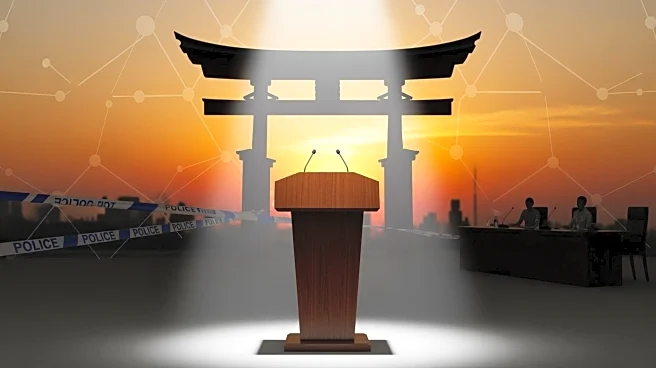What is the story about?
What's Happening?
The United Nations Security Council has rejected a resolution proposed by Russia and China to delay the reimposition of sanctions on Iran concerning its nuclear program. This decision comes as the deadline for sanctions approaches, with Western countries asserting that recent meetings failed to produce a concrete agreement. The resolution needed support from nine countries to prevent the sanctions from taking effect, but it did not receive the necessary backing. The sanctions, triggered by Britain, France, and Germany, will freeze Iranian assets abroad, halt arms deals, and penalize Iran's ballistic missile program, further impacting the country's economy. Iran's allies, including China and Russia, supported giving Iran more time to negotiate, but the resolution was ultimately unsuccessful.
Why It's Important?
The rejection of the resolution and the impending sanctions are significant as they are likely to escalate tensions between Iran and Western countries. The sanctions will further strain Iran's economy, which is already under pressure, and may provoke a strong response from Iran, potentially including withdrawal from the Nuclear Nonproliferation Treaty. This development could have broader implications for international relations and stability in the region, as Iran has previously threatened to follow North Korea's example in developing nuclear weapons. The situation underscores the challenges in diplomatic negotiations and the complexities of international nuclear agreements.
What's Next?
With the sanctions set to be reinstated, Iran's response remains uncertain. The country has previously indicated that it might withdraw from the Nuclear Nonproliferation Treaty, which would have significant implications for global nuclear security. The European nations have expressed willingness to extend the deadline if Iran complies with certain conditions, including resuming direct negotiations with the U.S. and allowing U.N. inspectors access to nuclear sites. However, Iran has threatened to cut cooperation with the International Atomic Energy Agency if sanctions are reimposed. The international community will be closely monitoring Iran's actions and any potential diplomatic efforts to resolve the situation.
Beyond the Headlines
The situation highlights the ongoing geopolitical tensions surrounding Iran's nuclear program and the broader implications for international diplomacy. The rejection of the resolution reflects the divisions within the U.N. Security Council and the challenges in achieving consensus on complex issues. The potential withdrawal of Iran from the Nuclear Nonproliferation Treaty could lead to a shift in global nuclear dynamics, raising concerns about nuclear proliferation and regional security. The situation also underscores the importance of diplomatic engagement and the need for effective mechanisms to address nuclear-related disputes.















